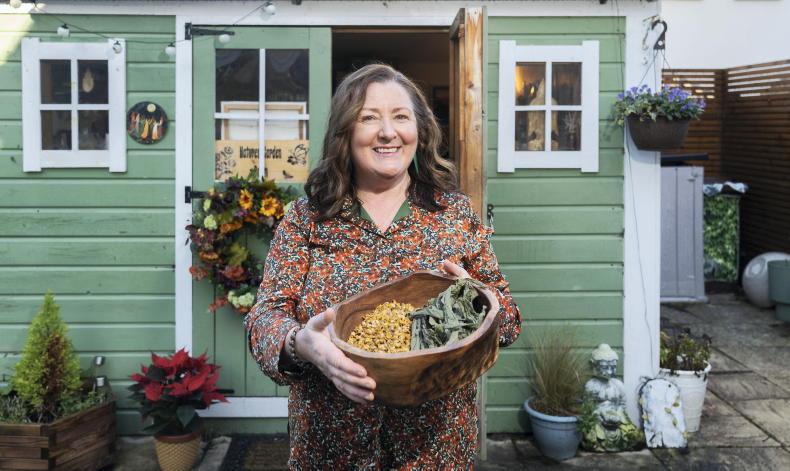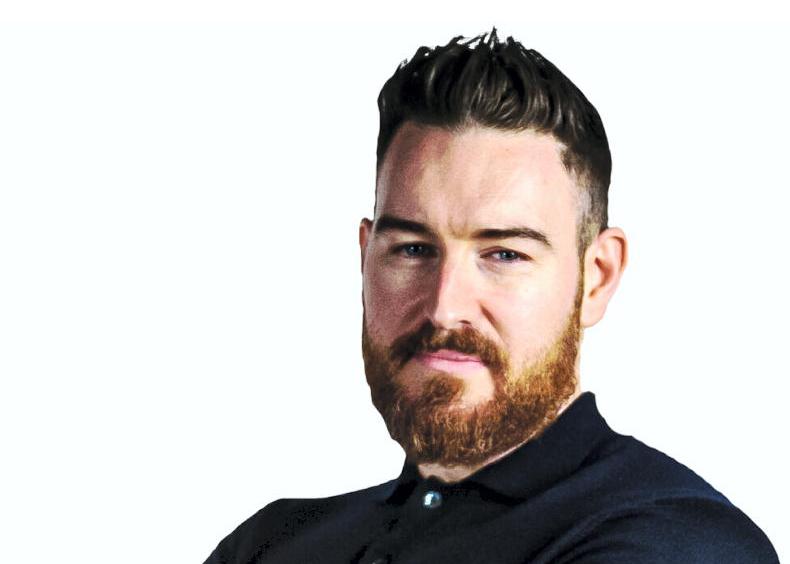New figures released by the Central Statistics Office in March show an increase of 104% in the number of women in employment compared to 26 years ago. In 1998, 641,800 women were employed in Ireland, which leapt to 1.2m in 2024.
Taking into account a 48% growth in Ireland’s population since 1998, these figures show a considerable improvement in female representation in the workplace.
With over 96 million women globally on career breaks, tapping into this demographic offers immense business potential for companies.
Supporting women in returning to work can boost Ireland’s economy by filling labour shortages, increasing productivity and creating a more diverse workforce.
So what can be done to support women across Ireland with employment?
1. Diversifying recruitment campaigns – more returner programmes with significant scale and a focus on potential and skills rather that the CV.
2. More short-term, paid internships for three to six months that give women hands-on, direct experience and a step back into the workforce.
3. Continuing support for hybrid working benefits both men and women as well as helping working parents deal with the additional burdens of childcare problems.
4. Businesses identifying structural barriers to women returning to areas in Science, Technology, Engineering and Mathematics (STEM) – there is a skills shortage in these sectors and low levels of women represented in them. However, many women who are qualified chemical engineers, systems analysts and MBA graduates cannot get an interview. There need to be more structured pathways for women in these areas to re-enter these sectors following a career break.
Irish Country Living looks at three different programmes that are encouraging women into employment through personal and professional support.
Back to Work Connect
Back to Work Connect, led by chief executive officer Gina Oglesby, is revolutionising recruitment by connecting employers with midlife returners – an often overlooked talent pool.
“For us, it is about addressing biases in recruitment and promoting midlife workers, offering returner-friendly recruitment training and community events. Despite the high demand for flexible roles, many employers do not advertise that in their job specs,” says Gina.
Back to Work Connect advocates for midlife workers and promotes them as a group of talented individuals who need to be taken seriously.
“One of the challenges that we see is the bias that exists within the recruitment sector itself,” says Gina.
This is around career gaps in CVs as an applicant might have less experience or have been out of work for a long period of time compared to other people applying for the same role.
Hiring managers are now using AI tools to help them sift through applications, which will automatically rule out anyone who has had a gap in employment.
One of the challenges that we see is the bias that exists within the recruitment sector itself
“We do a returner-friendly recruitment training, where we help employers to identify what the challenges are, identify their biases, and challenge them to look at two CVs. If you take the dates away, what makes one different to the other?” says Gina.
Another area that needs improvement is the amount of meaningful part-time jobs available.
“You can get a job in retail or the service industry, but for people who are highly- qualified and highly-skilled, there are very few organisations that offer part-time from the start,” she says.
“Ultimately, until we sort out the childcare situation and the absolute load that is on females to be able to care for a family, we will always have people who will have to leave the workforce because of childcare or elder care responsibilities,” says Gina.
Women@Work
The Women@Work programme supports women returning to work after a gap in their careers of more than two years.
“The women access a suite of coaching and training made up of individualised career planning and training delivered by our business volunteers through a series of workshops followed by industry-specific mentoring.
"Throughout the programme, participants start to develop their self-confidence, build their professional identity and gain a deeper understanding of the current jobs market and how best they can re-enter it,” says Gail Fitzgerald, programme manager for Women@Work.
Initially set up in 2020 under the EU Gender Equality, the initiative has a focus on supporting women to choose employment based on their own career ambitions.
“Research shows that once women have a family, their choice of employment is often based on their responsibilities outside work.
“For Irish women, this problem is further compounded by the lack of affordable housing in cities where traditionally the well-paid jobs are based as well as poor access to reliable childcare. So often women are reluctant to take on a role that has any significant responsibilities,” explains Gail.
Over 56% of the women who completed the programme have secured employment in finance, IT, professional services and the public sector. Another 30% have moved on to professional training with a clear understanding of the job they would like and are upskilling to get there.
“Access to hybrid and remote jobs has also meant that families in rural Ireland are not disadvantaged by geography and can continue to live outside the cities while also remaining in quality jobs,” says Gail.
WorkEqual
WorkEqual helps people get back into employment and supports them in becoming financially independent. Their objective is to help Ireland be recognised in terms of equity in society and, more so, in the workplace.
According to Su Duff, chief executive officer of WorkEqual, the majority of their clients are women who are gap returners, those who have never worked before or international people who are trying to enter the Irish workforce.
“Typically, the longer the person has been out of work, the more they look at that old CV that they had and think, ‘I don’t recognise that person, and I don’t know where to start’,” explains Su.
Their remote access programme runs for a 10-week period, starting this month. Its aim is to help people overcome individual barriers and become ready for remote or hybrid working. This free course is aimed at unlocking the potential for a more inclusive and fulfilling work experience.

Su Duff, chief executive officer for WorkEqual.
They are also expanding their reach across Ireland with a roadshow model that started in Cork. The next one is taking place in May and it is currently open to applicants who are interested in getting one-to-one support for re-entering the workforce.
“We do an interactive, practical event where we will team people up so that they have a half-hour one-to-one chat in person with a career or HR professional. They will also have a session with a stylist to give them clothes suitable for an interview. There are also speakers focusing on managing anxiety and the path to employment,” says Su.
They helped 70 women at the event hosted in February and another 50 in September 2024. There are 100 places at the May event. If interested, fill in the contact form on WorkEqual.ie.
New figures released by the Central Statistics Office in March show an increase of 104% in the number of women in employment compared to 26 years ago. In 1998, 641,800 women were employed in Ireland, which leapt to 1.2m in 2024.
Taking into account a 48% growth in Ireland’s population since 1998, these figures show a considerable improvement in female representation in the workplace.
With over 96 million women globally on career breaks, tapping into this demographic offers immense business potential for companies.
Supporting women in returning to work can boost Ireland’s economy by filling labour shortages, increasing productivity and creating a more diverse workforce.
So what can be done to support women across Ireland with employment?
1. Diversifying recruitment campaigns – more returner programmes with significant scale and a focus on potential and skills rather that the CV.
2. More short-term, paid internships for three to six months that give women hands-on, direct experience and a step back into the workforce.
3. Continuing support for hybrid working benefits both men and women as well as helping working parents deal with the additional burdens of childcare problems.
4. Businesses identifying structural barriers to women returning to areas in Science, Technology, Engineering and Mathematics (STEM) – there is a skills shortage in these sectors and low levels of women represented in them. However, many women who are qualified chemical engineers, systems analysts and MBA graduates cannot get an interview. There need to be more structured pathways for women in these areas to re-enter these sectors following a career break.
Irish Country Living looks at three different programmes that are encouraging women into employment through personal and professional support.
Back to Work Connect
Back to Work Connect, led by chief executive officer Gina Oglesby, is revolutionising recruitment by connecting employers with midlife returners – an often overlooked talent pool.
“For us, it is about addressing biases in recruitment and promoting midlife workers, offering returner-friendly recruitment training and community events. Despite the high demand for flexible roles, many employers do not advertise that in their job specs,” says Gina.
Back to Work Connect advocates for midlife workers and promotes them as a group of talented individuals who need to be taken seriously.
“One of the challenges that we see is the bias that exists within the recruitment sector itself,” says Gina.
This is around career gaps in CVs as an applicant might have less experience or have been out of work for a long period of time compared to other people applying for the same role.
Hiring managers are now using AI tools to help them sift through applications, which will automatically rule out anyone who has had a gap in employment.
One of the challenges that we see is the bias that exists within the recruitment sector itself
“We do a returner-friendly recruitment training, where we help employers to identify what the challenges are, identify their biases, and challenge them to look at two CVs. If you take the dates away, what makes one different to the other?” says Gina.
Another area that needs improvement is the amount of meaningful part-time jobs available.
“You can get a job in retail or the service industry, but for people who are highly- qualified and highly-skilled, there are very few organisations that offer part-time from the start,” she says.
“Ultimately, until we sort out the childcare situation and the absolute load that is on females to be able to care for a family, we will always have people who will have to leave the workforce because of childcare or elder care responsibilities,” says Gina.
Women@Work
The Women@Work programme supports women returning to work after a gap in their careers of more than two years.
“The women access a suite of coaching and training made up of individualised career planning and training delivered by our business volunteers through a series of workshops followed by industry-specific mentoring.
"Throughout the programme, participants start to develop their self-confidence, build their professional identity and gain a deeper understanding of the current jobs market and how best they can re-enter it,” says Gail Fitzgerald, programme manager for Women@Work.
Initially set up in 2020 under the EU Gender Equality, the initiative has a focus on supporting women to choose employment based on their own career ambitions.
“Research shows that once women have a family, their choice of employment is often based on their responsibilities outside work.
“For Irish women, this problem is further compounded by the lack of affordable housing in cities where traditionally the well-paid jobs are based as well as poor access to reliable childcare. So often women are reluctant to take on a role that has any significant responsibilities,” explains Gail.
Over 56% of the women who completed the programme have secured employment in finance, IT, professional services and the public sector. Another 30% have moved on to professional training with a clear understanding of the job they would like and are upskilling to get there.
“Access to hybrid and remote jobs has also meant that families in rural Ireland are not disadvantaged by geography and can continue to live outside the cities while also remaining in quality jobs,” says Gail.
WorkEqual
WorkEqual helps people get back into employment and supports them in becoming financially independent. Their objective is to help Ireland be recognised in terms of equity in society and, more so, in the workplace.
According to Su Duff, chief executive officer of WorkEqual, the majority of their clients are women who are gap returners, those who have never worked before or international people who are trying to enter the Irish workforce.
“Typically, the longer the person has been out of work, the more they look at that old CV that they had and think, ‘I don’t recognise that person, and I don’t know where to start’,” explains Su.
Their remote access programme runs for a 10-week period, starting this month. Its aim is to help people overcome individual barriers and become ready for remote or hybrid working. This free course is aimed at unlocking the potential for a more inclusive and fulfilling work experience.

Su Duff, chief executive officer for WorkEqual.
They are also expanding their reach across Ireland with a roadshow model that started in Cork. The next one is taking place in May and it is currently open to applicants who are interested in getting one-to-one support for re-entering the workforce.
“We do an interactive, practical event where we will team people up so that they have a half-hour one-to-one chat in person with a career or HR professional. They will also have a session with a stylist to give them clothes suitable for an interview. There are also speakers focusing on managing anxiety and the path to employment,” says Su.
They helped 70 women at the event hosted in February and another 50 in September 2024. There are 100 places at the May event. If interested, fill in the contact form on WorkEqual.ie.









SHARING OPTIONS